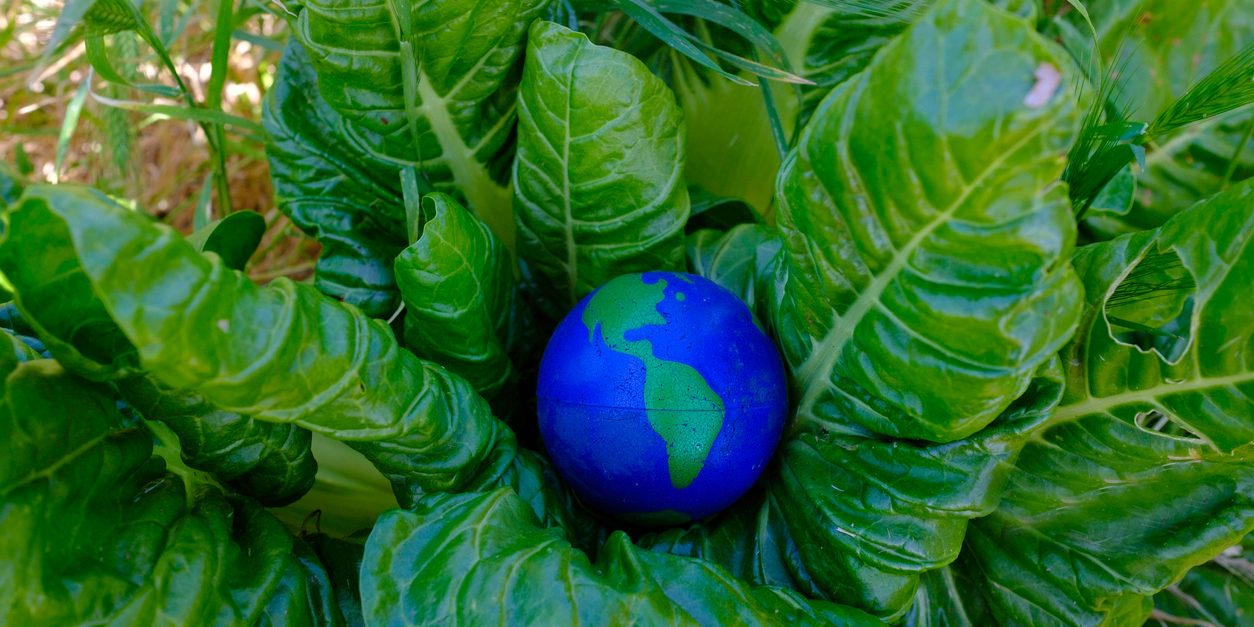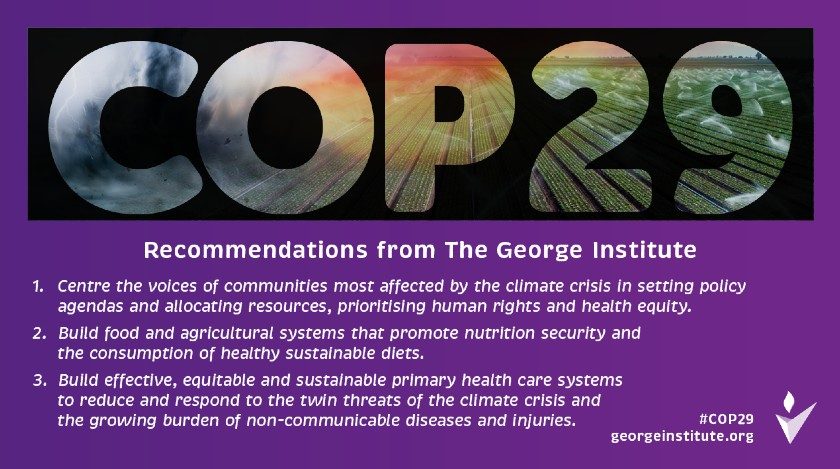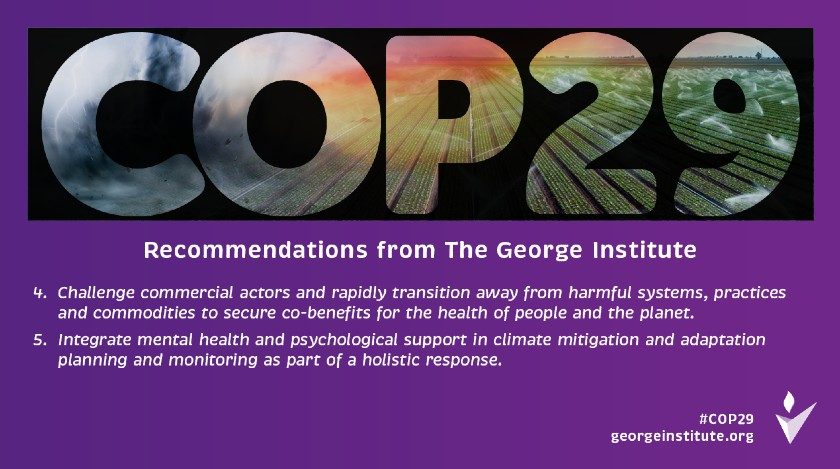
The George Institute calls for community-driven, intersectoral action at COP29
From 11 November – 22 November, world leaders will gather in Baku, Azerbaijan, alongside 32,000 delegates to the 2024 United Nations Climate Change Conference, COP29.
Following the prominent focus on health at the last COP, a topic neglected in previous conferences, the health community will continue to call for the mainstreaming of health in the global climate change agenda in recognition of the unprecedented threat to human health the climate crisis represents. Advocates will also be holding policymakers accountable for the implementation of commitments made in last year’s UAE Declaration on Climate and Health, which was endorsed by over 150 countries.
The George Institute’s delegation will once again be making an urgent call for world leaders to centre the voices of communities whose health, well-being and futures have been most impacted by climate breakdown, ensuring they are at the heart of national climate action plans and debate. In alignment with our research and evidence, we call on governments at COP29 to make a number of commitments, and ensure adequate financial investment to support them:


COP29 will feature a "Health Day" on November 18, which will include high-level discussions on the Baku Initiative on Human Development for Climate Resilience. The conference will also feature several World Health Organization (WHO) initiatives, such as a Health Pavilion which will host side events throughout the two weeks. During the Health Day, the 3rd Ministerial Meeting on Urbanization and Climate Change will also be held to discuss areas where progress is needed, particularly in enhancing resilience and improving health in urban areas.
As an accredited Observer organization under the United Nations Framework Convention on Climate Change (UNFCCC), The George Institute is partnering with Imperial College London and the American Psychological Association to host a side event showcasing the impacts of climate breakdown on mental health, a growing global issue that weakens communities' ability to cope. Extreme weather events are causing loss of life, displacement, disrupted education, and infrastructure damage, all of which exacerbate mental health challenges. As global heating worsens, rising mental illness, trauma, and suffering could severely hinder the collective action required for effective, locally-led adaptation interventions.
The event at COP29 will call for mental health to be embedded across climate and health discussions, exploring how the climate and ecological crisis affects young people and caregivers. It will also showcase youth-led action and global initiatives aimed at integrating mental health and psychological resilience into climate resilience efforts, drawing on dialogues from over 90 countries.
- Time: 13:15-14:45
- Date: Thursday 21 November
- Location: Side Event Room 2, Blue Zone
- Speakers: Dr Harshita Umesh (YOUNGO), Dr Emma Lawrence (Imperial College London), Dr Mercian Daniel (The George Institute for Global Health), Dr Amanda Clinton (American Psychological Association), Ayomide Olude (The Eco-Anxiety Africa Project) , Dr Alessandro Massazza (United for Global Mental Health), Dr John Balbus (U.S. Department of Health and Human Services), Dr Sandeep Maharaj (Global Sepsis Alliance)
- Learn more about planned side events and exhibits here.
The George Institute seeks to ensure that evidence informs the development and implementation of social, economic and environmental policies to address climate change and other urgent global health challenges. We are committed to placing at the heart of our work the Traditional Knowledges of First Nations and Tribal Peoples and the voices of other communities experiencing marginalisation. We work closely with these communities, stakeholders and policymakers at local, national and global levels to address and reverse the ongoing impacts of climate change on human health and equity. Read more about our planetary health work here.
Learn more:
- Explore the recent commentary co-authored with colleagues and published in The Lancet Psychiatry ahead of COP29, discussing the critical need to integrate mental health into climate and health discussions.
- Review the WHO’s COP29 Special Report on Climate Change and Health, which outlines key actions for a resilient and sustainable future, directed at governments and policymakers. We are proud to have contributed to this report.
- The Global Climate and Health Alliance has put forward 9 recommendations from the international health and climate community, calling upon Parties at COP29 to commit to and deliver ambitious climate action sufficient to protect and promote the health of people and the planet.
- Learn more about The George Institute’s research on the psychological responses to climate change and COVID-19 in young Indians.
- Check out relevant groups of which The George Institute is proud to be a member: the WHO Civil Society Working Group to Advance Action on Climate and Health, the Global Climate and Health Alliance, and the Planetary Health Alliance.

